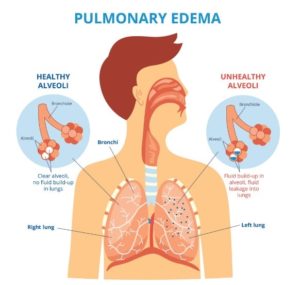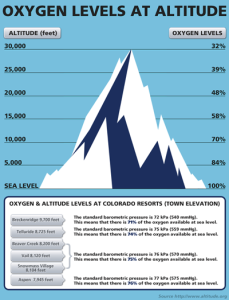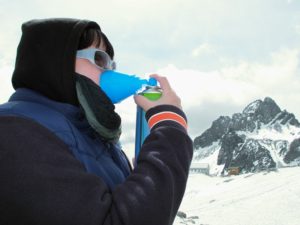As the 2020 pandemic continues to escalate doctors are warning of the dangers of equating the coronavirus to High Altitude Pulmonary Edema (HAPE). While the symptoms of the two can be similar, the two are very different, and equating the two can be life-threatening. Both conditions can cause respiratory failure, trouble breathing, and extremely low oxygen levels in the blood, but there are some stark differences between the two.

HAPE can occurs usually when people living at low altitudes ascend quickly to altitudes above 8,200 feet but have also been reported at altitudes as low as 4,900 feet. Low oxygen levels in the air lead to low oxygen levels in the lungs that can cause fluid to leak into the lungs leading to respiratory failure. This condition is especially more likely in those who travel to ski, snowboard, climb, or travel to higher altitude areas in a short period of time without acclimating.

COVID-19 on the other hand, is a virus that attacks the cells that make up the air sacks of the lungs. This also leads to fluid entering the alveoli (air sacs), but under much lower pressure than that of HAPE. The two conditions can be easy to mistake, but treatment options are very different between them.
Under most circumstances, oxygen treatment is enough to resolve HAPE. Most people traveling to states such as Colorado, Utah, Montana, or Wyoming have seen the advertisements of oxygen treatments when visiting. COVID-19, on the other hand, cannot be treated solely with these oxygen treatments. Studies have shown that two common medicines used in treating HAPE, Nifedipine, and acetazolamide, can have dangerous side-effects when treating patients with COVID-19.
For those at risk of HAPE in the near future, make sure to see a doctor before assuming your current situation.

“If given to a patient with lung injury due to COVID-19, it [nifedpine] has the potential to actually worsen oxygen levels in the blood and to lower systemic or whole-body blood pressure,” -Dr. Andrew Luks of the American Thoracic Society.